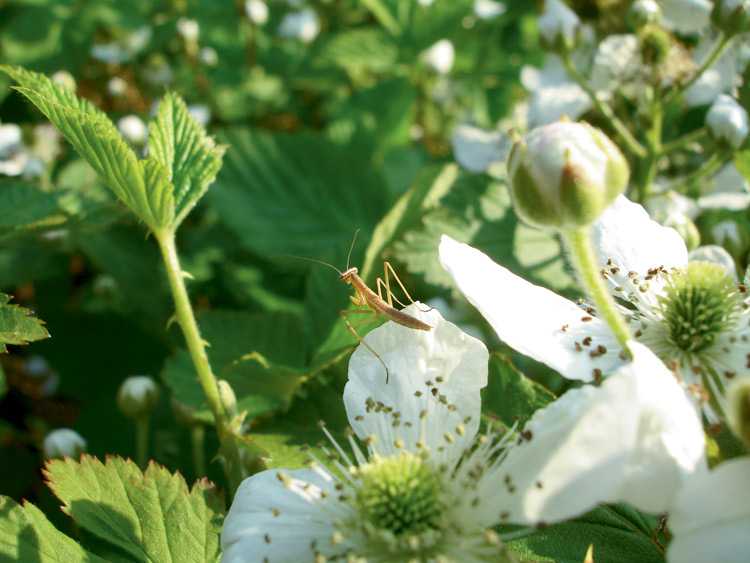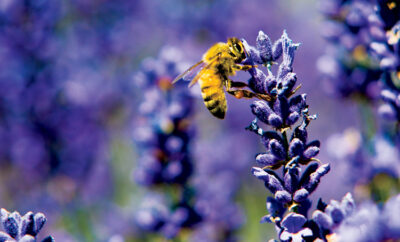Bug Off! Natural Ways to Prevent Insects in Your Garden
Each spring I look forward to growing bright, colorful flowers; big, juicy tomatoes; and a lush, green lawn. If you are like me, you want to keep your plants free of unwanted pests and diseases but don’t want to use toxic chemicals to do the trick.

By limiting the use of harsh chemicals in your own backyard, you can reduce the amount of poisons that can potentially end up in streams, soil, food chains, and on children’s hands and pets’ paws. Here are my techniques for minimizing the effects of garden pests and reducing the need for hazardous chemicals:
Above all, choose disease- and insect-resistant plants. These plants won’t require pesticides. One of the chief roles of the research in the University of Tennessee Gardens in Knoxville and Jackson is the identification of the best-performing insect and disease resistant plants. We’ve taken the guesswork out of selecting the best plants so you can purchase high-quality, proven-performance plants with confidence. Consider using native plants as well since they are typically more resistant to pests and are adapted to our region.
Before contemplating pest control, make sure you have a pest problem. Learn your enemies. Equally important, learn your natural allies and welcome these beneficial organisms such as ladybugs, minute pirate bugs, big-eyed bugs and lacewings into your garden. Some of the best plants for attracting beneficial insects include sunflowers, daisies, parsley, mint, peony, foxglove, cosmos, dill and fennel. For assistance in diagnosing insect and disease problems, check out the UT Entomology and Plant Pathology Distance Diagnostic Web site.
Pest control begins with prevention. Learn the cultural requirements for the plants you want in your garden, and plant them in the ideal site. Plants in the wrong location will become stressed, weakening the plant and making it more susceptible to insects and diseases. Keep ahead of pests by building healthy garden soil, controlling weeds, providing just enough water, and making sure your plants have the nutrients and organic matter they need. Keeping your garden clean of weeds, old fruit, fallen diseased-leaves, and failing plants goes a long way toward warding-off pests.
If prevention and proper plant selection fail, I recommend using a natural insecticide or fungicide. Every gardener should have neem oil in their arsenal, as it can repel and control many pests as well as fungal diseases such as leaf spots and powdery mildew. Horticultural oils also work well on controlling pests. Make sure you follow label directions when using these oils because they can easily burn plant foliage.
For safe slug control, try iron phosphate. When applied as bait and eaten by slugs, this simple compound inhibits their ability to feed.
Insecticidal soaps are always a safe and pretty effective way to spray and kill insects. A variety of different brands are on the market and readily available.
Baking soda and its close relative, potassium bicarbonate, have been known to be effective against powdery mildew. The most effective formulations of these chemicals include oils and soaps that enhance their distribution on the foliage when sprayed. Commercial formulations are readily available.
Along with these simple, natural remedies, similar ones can be found in a variety of gardening books and Web sites. Two books in particular that impress me are The Truth About Organic Gardening: Benefits, Drawbacks, and the Bottom Line and The Truth About Garden Remedies: What Works, What Doesn’t, and Why, both by Jeff Gillman.
















I would like to add that moth balls are also good in controlling pest. I tried it at home for roaches and rats. It’s very effective. I can only see few roaches now than before.